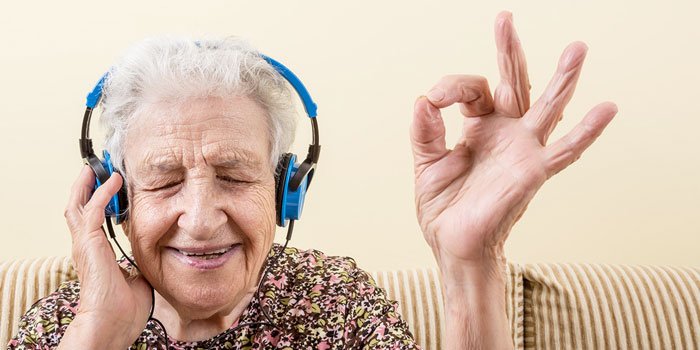No products in the cart.
Uncategorized
The Affect of Music on People Living With Dementia
A report from the Commission on Dementia and Music, ‘Without a Song or Dance, What are We,’ found that music has significant physical and mental health benefits for patients with dementia.
Music helps dementia patients retain their speech and language skills longer. It has also been proven to significantly minimise some of the symptoms of dementia, such as agitation, anxiety and depression. In addition, music engages different parts of the brain from language, so it can be used as a tool to communicate with people with dementia, even if they are no longer able to speak or do not seem to understand words. This means that music can help dementia patients express their feelings and ideas and interact with others. Enjoying music in a group setting can also reduce the social isolation felt by so many dementia patients and encourage a level of physical activity through dancing and moving to the music.
Some of the other ways music helps dementia patients are as follows:
Music Evokes Emotions that Can Stimulate Memories
Music can evoke emotion in even the most advanced dementia patients. According to Neurologist Oliver Sacks, “Music evokes emotion, and emotion can bring with it memory… it brings back the feeling of life when nothing else can.”
As a consistent rhythm can help patients recall memories, pairing music with everyday activities can be an effective method of helping dementia patients develop a routine or carry out daily tasks. Over time, music can help to improve the cognitive ability of a dementia patient and help them carry out day to day activities consistently.
Music Helps Reach Beyond the Disease to the Person
According to Linda Maguire, lead writer of a US Study on Dementia and Alzheimers, “Musical aptitude and music appreciation are two of the last remaining abilities in patients with Alzheimer’s.” As these abilities remain long after other abilities have passed, music is an excellent way to communicate with the patient and reach them on a deeper level beyond the disease.
Music Encourages Closeness
In the more developed stages of dementia, patients often lose the ability to share their emotions with caregivers and family members. If they are still able to dance, music can encourage a physical closeness, which helps them express their emotions and feel secure. Our Compassionate Touch® Course also helps with physical closeness as it teaches effective touch techniques for caregivers and their patient.
Singing Activates the Brain
Singing activates the left side of the brain, listening to music sparks activity in the right side of the brain, and participating in music classes activates visual areas of the brain. As so many areas of the brain can be stimulated by music, it can be an excellent way to help dementia patients exercise their brain and use more mind power than they normally would.
Music Can Impact Mood & Stimulate Cognitive Function
According to the Alzheimer’s Foundation of America, the appropriate use of music can elevate the patient’s mood, and manage agitation and stress, as well as stimulate positive interactions. Music can also facilitate cognitive function and coordinate motor movements in patients.
Music For Dementia Patients: A Case Study
MHA Westona and Queensway is a care home in Stafford in the United Kingdom with a specialist dementia care unit. The care home has provided music therapy to its patients for more than 10 years, with more than 2,000 residents across MHA’s 84 care homes taking part in regular music therapy sessions.
According to the staff and relatives of the care home’s patients, the sessions have made a real difference to the residents, particularly Pegg, a 91-year-old suffering from dementia.
The music therapy sessions turned Pegg into a “completely different person”, helping to alleviate the anxiety that her dementia caused. After even her first class, Pegg was smiling and remembering dancing with her husband. Pegg now attends a weekly one to one class, where she sings, claps or plays instruments. As a result of the class, Pegg has become calmer and started participating in other activities in the care home, which has improved her appetite and mood overall.
Caring for someone with Dementia day to day is extremely difficult, however, little things like music can help brighten the day for both of you. Dr Jane Flinn, a researcher from George Mason University said:
“The message is: do not give up on these men and women. You want to be performing things that engage them, and singing is cheap, effortless and engaging.”
If you are caring for someone with dementia and want to use music in their care, but don’t know where to start, just think about the music genres that they have always enjoyed the most. Start playing songs to them and you’ll quickly be able to tell which they are most responsive too.
We’d love to hear how you’ve used music in your care routine. Leave us a comment to let us know.
In the Ageless Grace® course we move to music, letting our body bring back sensations of movement skills we had years ago and activating our brain at the same time.


